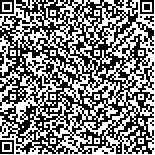谭茗丹,冯锭瑶,李咏雪.基于国际功能、残疾和健康分类研究失语症患者对其照料者第三方残疾的影响[J].中华物理医学与康复杂志,2025,47(9):787-791
扫码阅读全文

|
| 基于国际功能、残疾和健康分类研究失语症患者对其照料者第三方残疾的影响 |
|
| |
| DOI:10.3760/cma.j.cn421666-20241028-00867 |
| 中文关键词: 国际功能、残疾和健康分类 失语症 照料者 第三方残疾 |
| 英文关键词: International Classification of Functioning, Disability and Health Aphasia Caregivers Third-party disability |
| 基金项目:广东省基础与应用基础研究基金项目(2023A15151130665) |
|
| 摘要点击次数: 833 |
| 全文下载次数: 609 |
| 中文摘要: |
| 目的 探讨基于国际功能、残疾和健康分类(ICF)研究脑卒中失语症患者对其照料者第三方残疾的影响,并分析其影响因素。 方法 募集脑卒中失语症患者及照料者64对,对患者采用一般情况调查表和西方失语症成套测验(WAB)进行评估,对照料者采用一般情况调查表和失语症家庭生活影响评估表(FAMLI)进行评估。对失语症患者WAB评分与照料者FAMLI评分进行Pearson相关性分析,并采用多重线性回归分析筛选出照料者第三方残疾的影响因素。 结果 失语症患者照料者的FAMLI总分为(33.64±19.38)分,其中不同患者的年龄和病程间的FAMLI评分差异有统计学意义(P<0.05)。经Pearson相关性分析,失语症患者的大脑皮质商(CQ)和失语商(AQ)与其照料者的FAMLI评分均呈显著正相关(r值分别为0.408和0.395,P<0.01)。多重线性回归分析结果显示,失语症患者的CQ评分、年龄与失语症患者照料者的FAMLI评分均显著相关(β值分别为0.326和0.599,P<0.01)。 结论 脑卒中后失语症患者的照料者存在第三方残疾,而失语症患者的年龄和失语严重程度是其照料者生活质量重要影响因素。 |
| 英文摘要: |
| Objective To study the impact of third-party disability in caregivers of aphasia patients with stroke based on the concept of the International Classification of Functioning, Disability and Health (ICF), and to examine the factors influencing it. Methods Sixty-four pairs of stroke patients with aphasia and their caregivers were recruited. The patients were assessed using a general information questionnaire and the western aphasia battery (WAB), while the caregivers were surveyed using a general information questionnaire and a family aphasia measure of life impact (FAMLI) developed based on the ICF framework. Pearson correlation analysis was performed on the WAB scores of the patients and the FAMLI scores of their caregivers, and multiple linear regression analysis was used to screen out the factors significantly influencing third-party disability among the caregivers. Results The caregivers′ average total FAMLI score was (33.64±19.38), with significant differences reflecting the patient′s age and the course of the disease. Correlation analysis showed that the patients′ cerebral cortical quotients (CQs) and aphasia quotients were significantly and positively correlated with the FAMLI scores of their caregivers (r-values of 0.408 and 0.395, respectively). Multiple linear regression analysis showed that a patient′s CQ score and age were significantly correlated with the FAMLI score of their caregiver (β-values of 0.326 and 0.599, respectively). Conclusion The caregivers of stroke survivors with aphasia tend to have third-party disabilities. The patient′s age and the severity of their aphasia are important predictors of life quality for their caregivers. |
|
查看全文
查看/发表评论 下载PDF阅读器 |
| 关闭 |